A wire cd of length l and mass m is sliding without friction on conducting rails ax and by as shown. The verticle rails are connected to each other with a resistance R between a and b. A uniform magnetic field B is applied perpendicular to the plane abcd such that cd moves with a constant velocity of
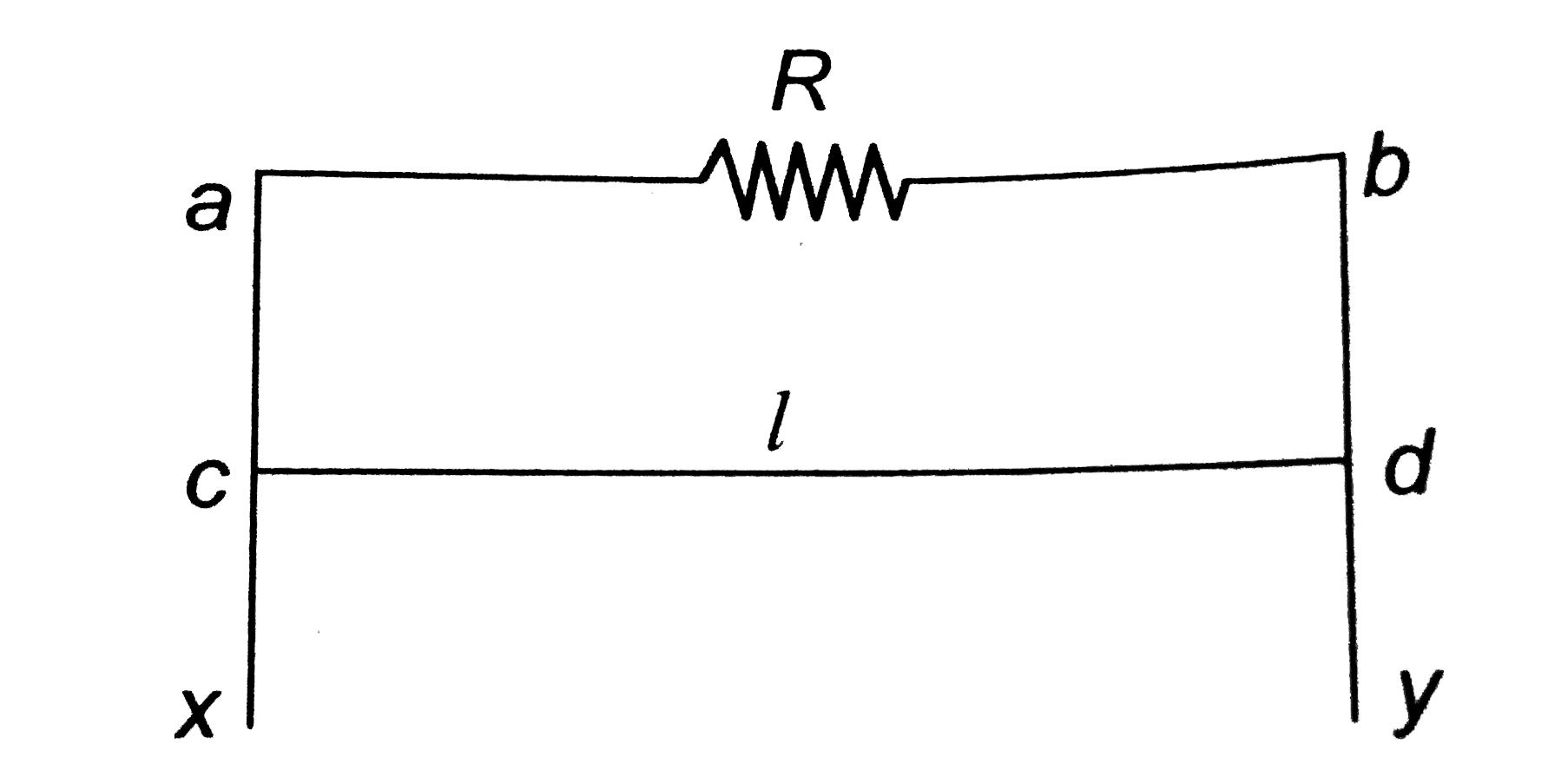
mgRBl
mgRB2l2
mgRB3l3
mgRB2l
The correct Answer is:B
Due to B, force (upward)
F=BIl=B(BlvR)l=B2l2vR
If slides with constant velocity -
Then, B2l2vR=mg⇒v=mgRB2l2.
Similar Questions
A coducting rod of mass m=0.3kg and length l=4m can slide without friction on two parallel conducting rails. The conducting rails are connected via an inductancce L=3Mh. This system is placed in a region containing uniform magnetic field B=1T pointing into the plane. if the rod is given an initial velocity v0=2m/s, it oscillates with an amplituude Acm. Find the value of 2A

View SolutionA square wire of length L1 mass m and resistance R slides without friction on parallel conducting resistanceless rails. The rails are interconinected at the bottom by resistanceless rails so that the wire and the rails form a closed rectangular loop. The plane of the rails is inclined at an angle θ with the horizontal and a vertical uniform magnetic field B exists within the frame. If the wire acquires a steady velocity of magnitude v=kmgRsinθ6B2l2, cos2θ
'(##CEN_KSR_PHY_JEE_CO23_E01_040_Q15##)'
View Solution
Knowledge Check
A conducting wire xy of lentgh l and mass m is sliding without friction on vertical conduction rails ab and cd as shown in figure. A uniform magnetic field B exists perpendicular to the plane of the rails, x moves with a constant velocity of
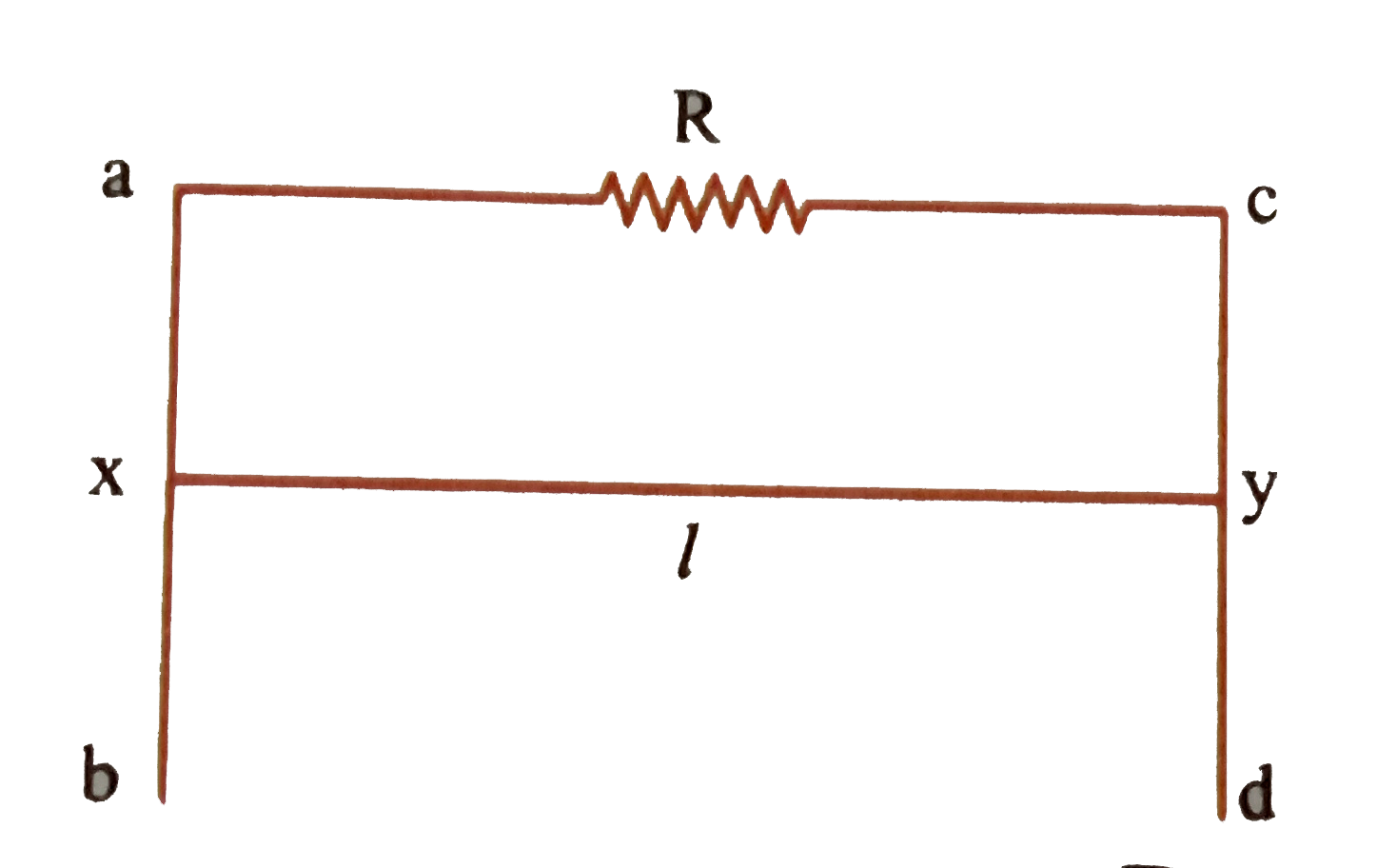 AmgRBlBmgRBl2CmgRB2l2DmgRB2l
AmgRBlBmgRBl2CmgRB2l2DmgRB2lA wire of length l, mass m and resistance R slides without any friction down the parallel conducting rails of negligible resistance . The rails are connected to each other at the bottom by a resistanceless rail parallel to the wire so that the wire and the rails form a closed rectangualr conducting loop. The plane of the rails makes an angle θ with the horizontal and a uniform vertical magnetic field of the inducetion B exists throughout the rregion. Find the steady state velocity of the wire.
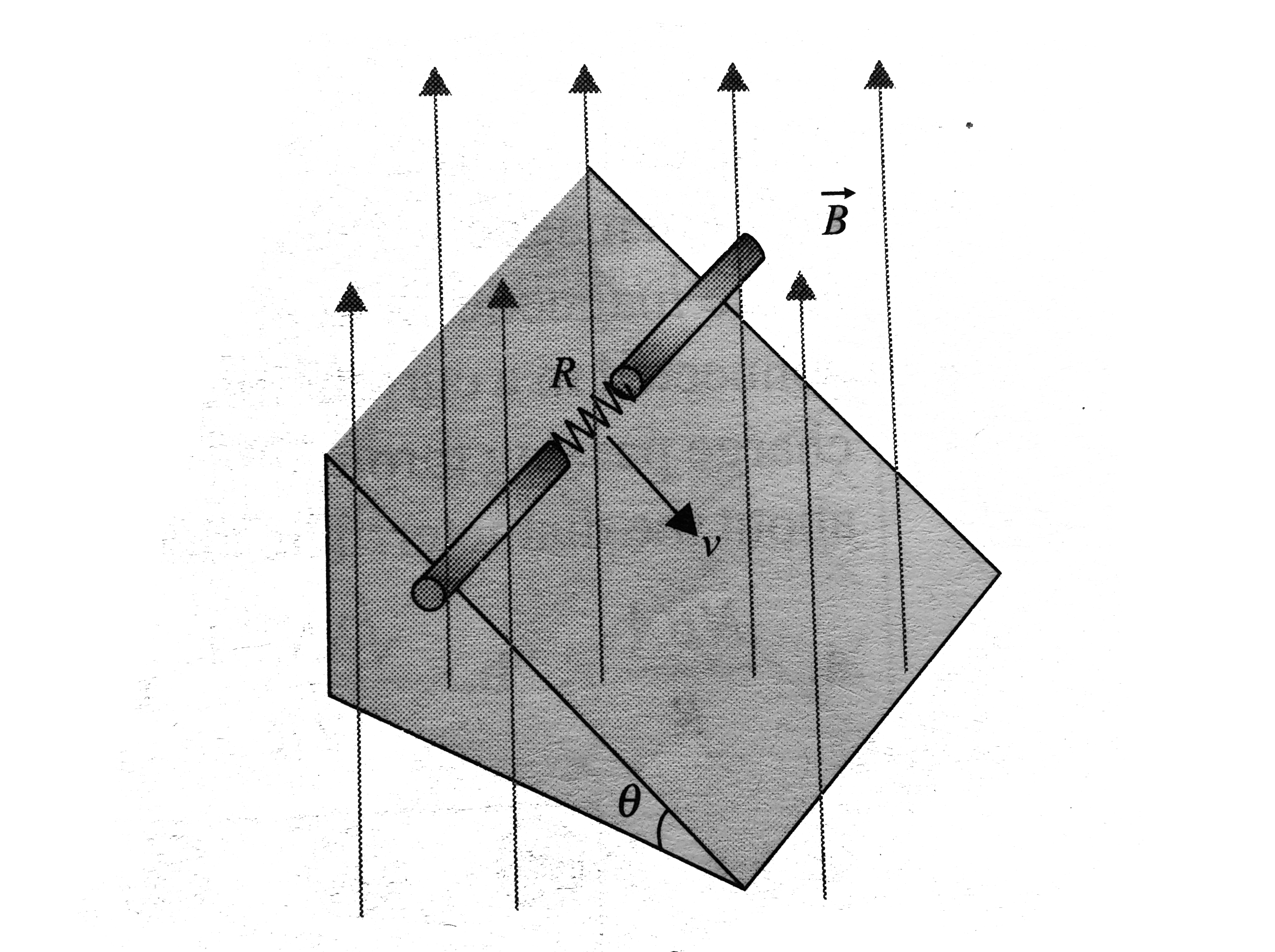 A(a) mgRsinθB2l2cos2θB(b) mgRsin2θB2l2cos2θC( c) mgRsinθB2l2cos2θD( d) mgRsin2θB2l2cosθ
A(a) mgRsinθB2l2cos2θB(b) mgRsin2θB2l2cos2θC( c) mgRsinθB2l2cos2θD( d) mgRsin2θB2l2cosθA copper wire ab of length l, resistance r and mass m start sliding at t=0 down a smooth, vertical, thick pair of connected conducting rails as shown in figure. A uniform magnetic field B exists in the space in a direction perpendicular to the plane of the rails which options are correct .
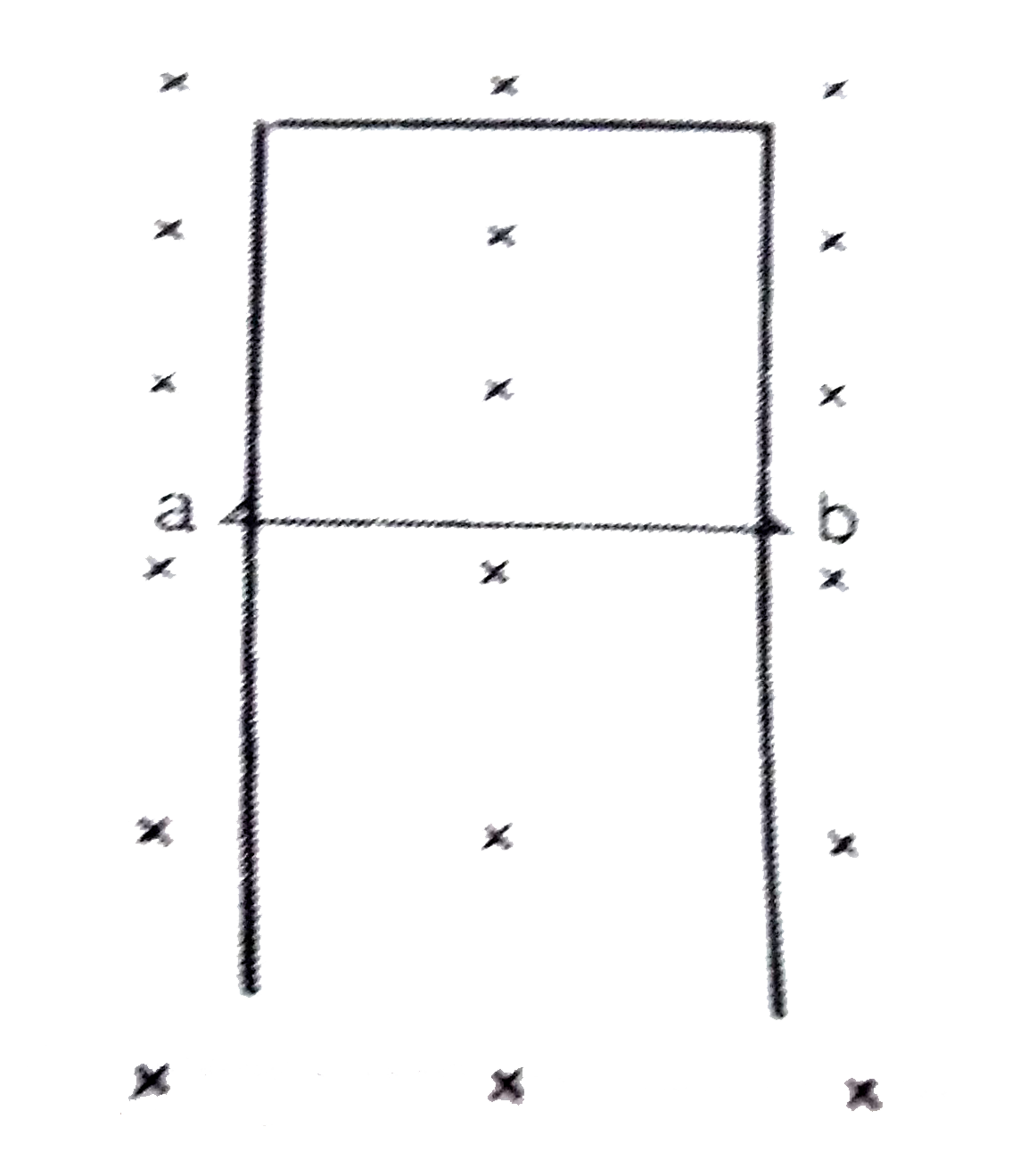 AThe magnitude and direction of the induced current in the wire when speed of the wire v is vBlr, a to bBThe downward acceleration of the wire at this instant g−B2l2mrvCThe velocity of the wire as a function of time vm(1−e−gt/vm),(wherevm=mgrB2l2)DThe displacement of the wire as a function of time vmt−v2mg(1−e−gt/vm),(wherevm=mgrB2l2)
AThe magnitude and direction of the induced current in the wire when speed of the wire v is vBlr, a to bBThe downward acceleration of the wire at this instant g−B2l2mrvCThe velocity of the wire as a function of time vm(1−e−gt/vm),(wherevm=mgrB2l2)DThe displacement of the wire as a function of time vmt−v2mg(1−e−gt/vm),(wherevm=mgrB2l2)
A copper wire ab of length l, resistance r and mass m starts sliding at t=0 down a smooth, vertical, thick pair of connected condcuting rails as shown in figure.A uniform magnetic field B exists in the space in a direction perpendicular to the plane of the rails which options are correct.
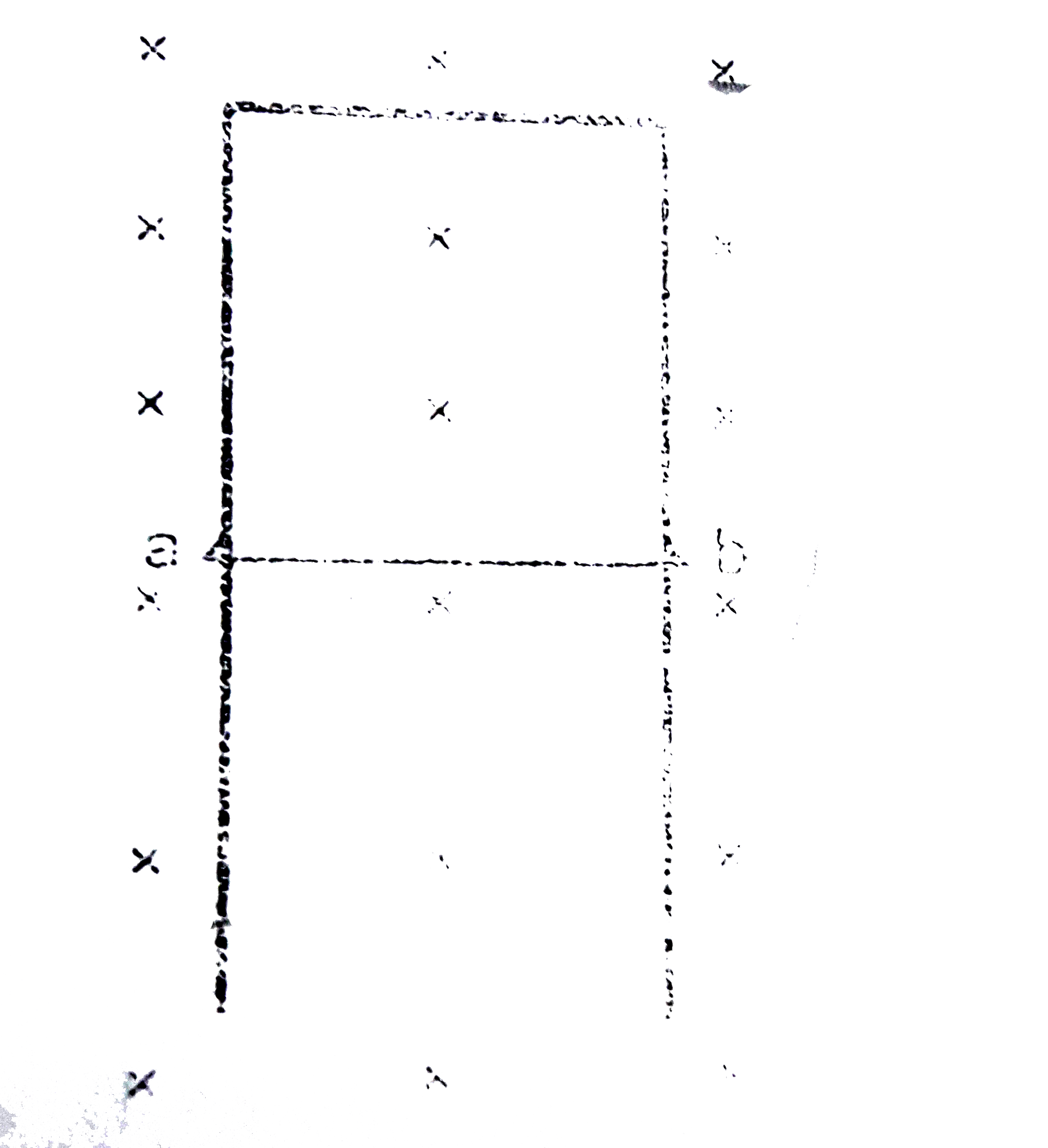
View SolutionA conducting wire ab of length l resistance r and mass m starts sliding down at t=0 on a smooth, vertical thick pair of connected rails as shown. The terminal speed of the wire is
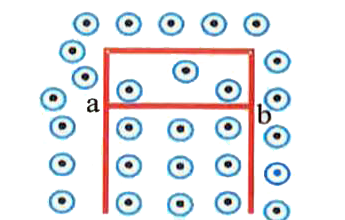
View SolutionA horizontal wire is free to slide on the vertical rails of a conducting frame as shown in figure. The wire has a mass m and length l and the resistance of the circuit is R. If a uniform magnetic field B is directed perpendicular to the frame, the terminal speed of the wire as it falls under the force of gravity is
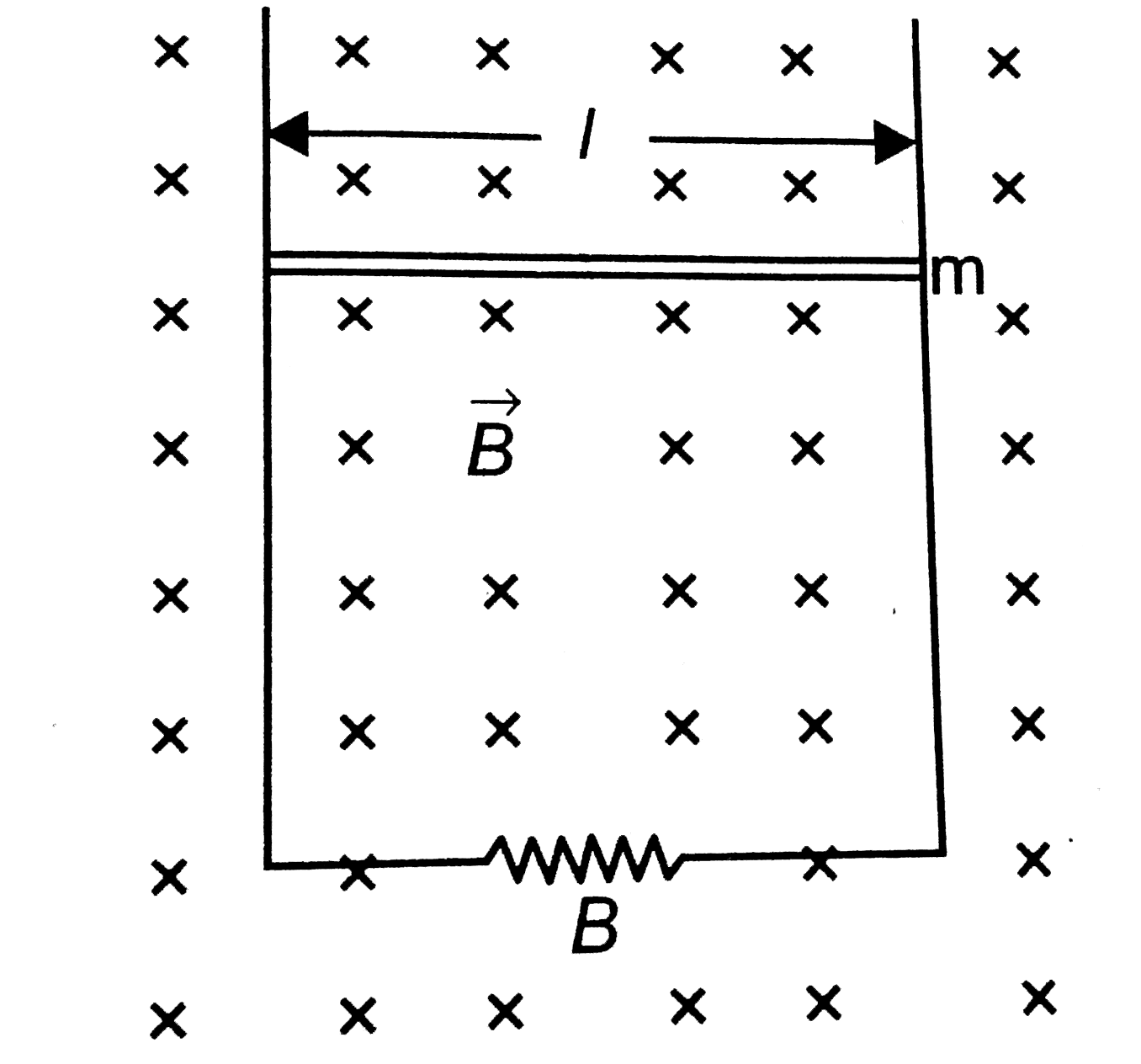
View SolutionA conducting rod of mass m and length l is free to move without friction on two parallel long conducting rails, as shown below. There is a resistance R across the rails. In the entire space around, there is a uniform magnetic field B normal to the plane of the rod and rails. The rod is given an impulsive velocity v0-
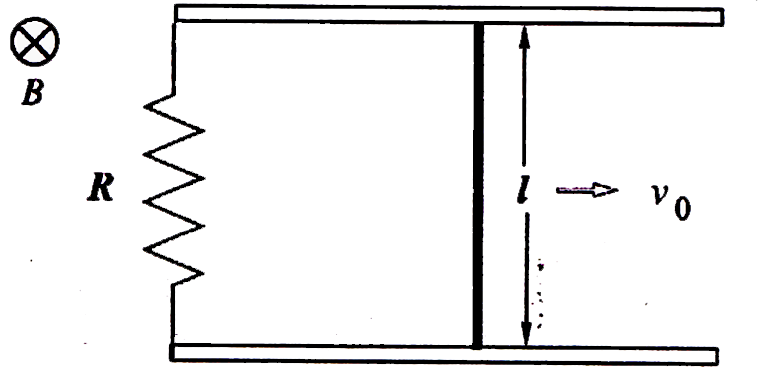
Finally, the initial energy 12mv20
View SolutionA conductor of length l and mass m can slide without any friction along the two vertical conductors connected at the top through a capacitor. A uniform magnetic field B is set up ⊥ to the plane of paper. The acceleration of the conductor
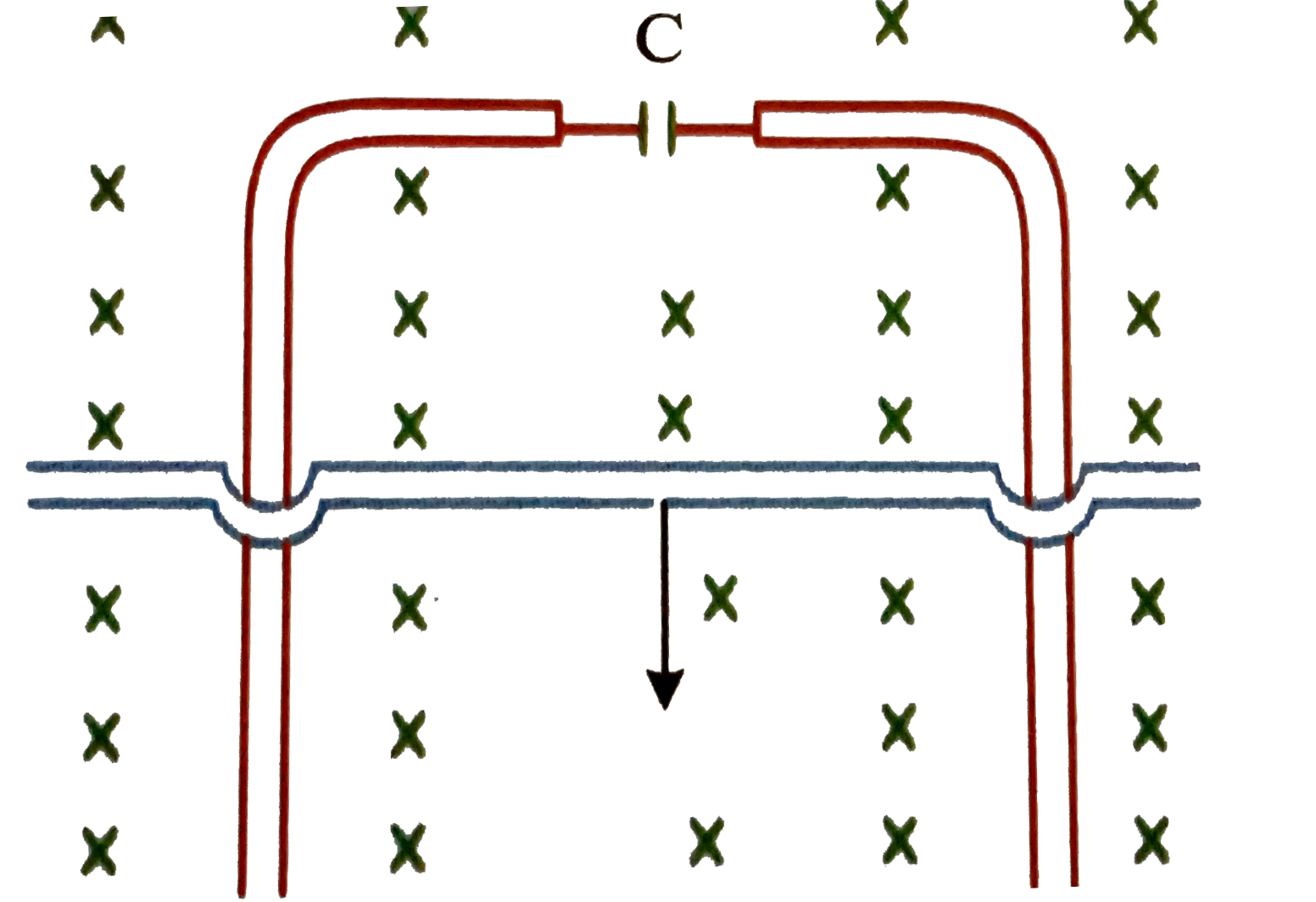
View Solution
